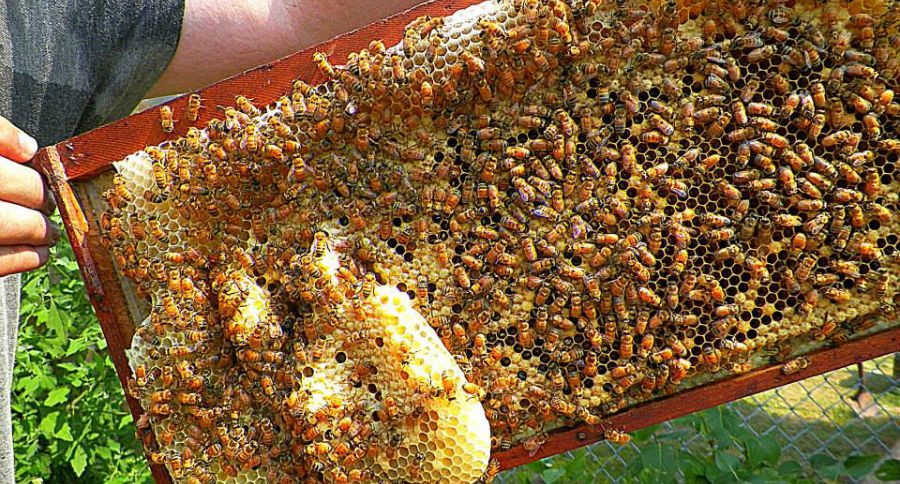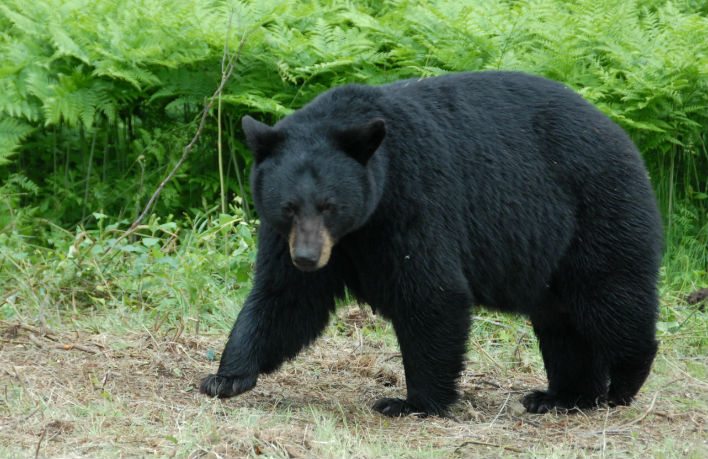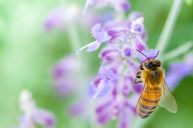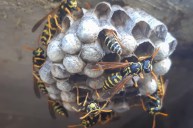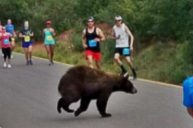Maryland beekeepers now have an additional means of defense to protect their hives from marauding black bears. They can shoot them.
Maryland Delegate Mike McKay testified before the state's Environment and Transportation Committee, wearing a vest bearing the image of Winnie the Pooh, in support of a bill which would allow beekeepers the right to shoot black bears that are threatening their bee hives.
Currently, state law requires a hunting license and bear permit to kill a bear, but the bill supported by McKay has nothing to do with hunting bears.
The law already exempts "a person who kills or wounds a black bear in defense of his/her own life, the lives of other individuals, or the lives of animals on the individual's property." The bill would effectively include bees as defensible livestock.
The general assembly passed McKay's bill and should it also receive the governor's signature it will become law. The bill has the provision that beekeepers must have contacted the Maryland Department of Natural Resources about potential bear trouble, and have installed an electric fence - provided by the DNR - to protect their hives.
This law is necessary, says Maryland State Beekeepers Association president Allen Hayes, because electric fences do not always deter bears intent on getting to a hive. Hayes says that bears "have been known to take the shock to the get the reward on the other side."
And the damage that a black bear will do to a hive is substantial.
Eric Mussen, Emeritus Extension Apiculturist at the University of California, Davis, says that bears will utterly destroy a bee colony. "They leave the covers scattered all over; the hive boxes scattered and often broken; the combs pulled out, broken, and strewn about in the apiary; and the combs that had brood in them will have the comb eaten out," he says. "The colony will not survive and there may be very little undamaged equipment to salvage."
Bears do eat honey, but the real damage comes from their appetite for brood larvae and pupae, which they voraciously devour for the high fat content.
"To a small-scale beekeeper, the financial loss is not too severe," Mussen adds. "However, losing the colony, that requires so much effort to keep healthy these days, is quite a blow. For commercial operators, who may not revisit the apiary for a couple weeks, it can mean very substantial economic loss."
"We're concerned about the beekeepers who raise bees for honey and other agricultural uses," McKay explained. "We know that black bears do attack them, and we just need to figure out a way we can protect the investment, because it is livestock. If a black bear is hurting a lamb or a calf, you have the right to shoot that because it is your investment and your livestock. We just want to extend the same to those who are in the beekeeping industry."
Ben Cooper of the Maryland State Beekeepers Association agrees. Presently the DNR classifies honeybees as insects, but Cooper declared that "Honeybees are in fact animals," and are considered an agricultural commodity.
Currently Maryland has a Black Bear Damage Reimbursement Fund, and the state gets about two claim requests per year.
In 2015 Maryland beekeepers lost more than 60 percent of their hives.
Honeybee colony losses have been so severe in recent years that there is legitimate public concern for the pollinators and tghe agricultural industry that relies on them.
The losses can have a dramatic effect on the agricultural well-being of the nation as a great many small and corporate farms rely on honeybees, often brought in by commercial beekeepers, to effectively pollinate crops.
Like what you see here? You can read more great articles by David Smith at his facebook page, Stumpjack Outdoors.
NEXT: Do Bears Poop While They are Hibernating?
https://rumble.com/embed/u7gve.v3trcz/
